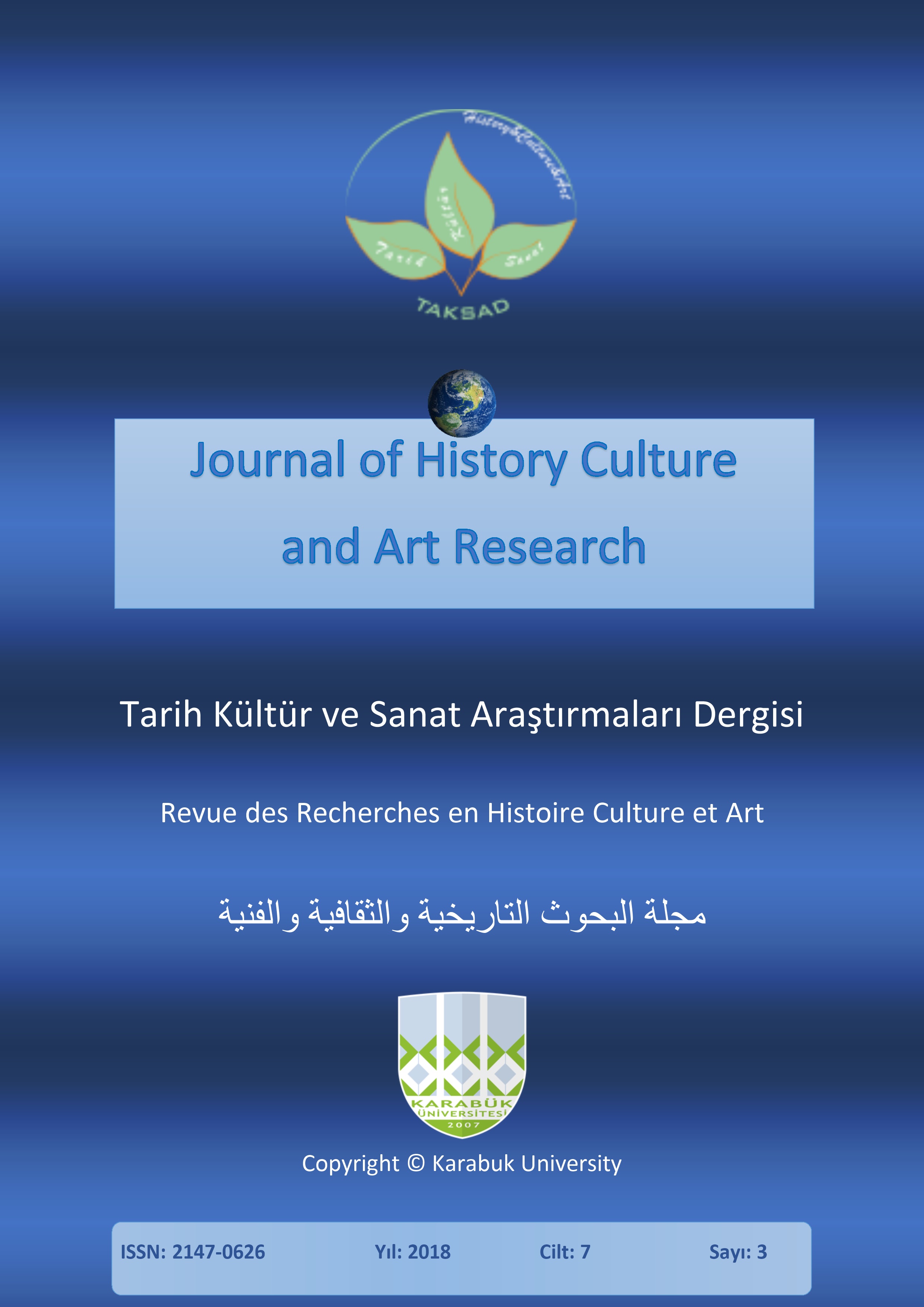A Comprehensive Study of the Olonkho: Discussion and Perspectives
DOI:
https://doi.org/10.7596/taksad.v7i3.1732Keywords:
Epic genre aesthetics, Olonkho by P. A. Oyunsky, Plot semantics, Structural analysis, Epic ritualism.Abstract
There is an increasing interest on the creative features of the Yakut epic olonkho in current literature. The article gives special focus to acknowledged researches of distinguished scholars who studied the oral epic heritage of the Sakha people. An overview of these researchers’ works and their methodology is achieved with the following goal - to single out rationalized scientific approaches in the process of typological systemization of the Yakut epic based on the structural analysis of the olonkho plots and images; to explain the substantiated ideas expressed in complex research monographs by I.V. Pukhov, N.V. Emelyanov, A.P. Reshetnikova, and D.T. Burtseva as a systematic in-depth text analysis of the oral traditional art. In these aspects, there is a range of specific foundations that form the olonkho; this is explained in the research works in the form of plot classification and a fixed systemization of the main images together with a complex typological study of the unity of two planes - the epic content plane and the oral expression plane. The main dogmas of the research completed by Yakut scholars is advocated through the prism of theoretical issues and fundamental problems reflected in the works by Aristotle, H.W.F. Hegel, A.N. Veselovsky, E.M. Meletinsky on the aesthetics and poetics of oral forms of language art. Research results expand the range of possibilities of holding a complex study of epic, which does not exclude the possibility for scientific discussions. Perspectives for a complex olonkho research are in the fact that these research works reveal the creative onsets of the ancient oral art texts in a polyphonic concordance and in equal amounts. This is the conventionality in expressing the reality in its pure form, the inner completeness of a unified expression of the idea; and the originality, all of which cannot simply be taught; the uniqueness, equal to universality; the initial natural address towards the listeners, which can be equaled to the creative foundations of olonkho as one of the examples of unique epic storytelling forms.
References
Antonov, N. K. (1971). Materials on the historical vocabulary of the Yakut language. Yakutsk.
Aristotle (2000). Poetics. Rhetorics. St. Petersburg: Azbuka Press.
Burtsev, D. T. (1998). The Yakut epic olonkho as a genre. Novosibirsk: Nauka Press.
Emelyanov, N. V. (1962). Yakut proverbs and sayings. Yakutsk.
Emelyanov, N. V. (1980). Yakut olonkho plots. Moscow: Nauka Press.
Emelyanov, N. V. (1983). Early olonkho plots. Moscow: Nauka Press.
Emelyanov, N. V. (2000). Olonkho plots about the defenders of the tribe. Novosibirsk: Nauka Press.
Hegel, G. W. F. (1968). Aesthetics. Vol. 1, Moscow: Iskusstvo Press.
Khudyakov, I. A. (1969). Brief description of the Verkhoyanskiy region. Leningrad: Nauka Press.
Ksenofontov, G. V. (1937). Urankhai sakhalar. Notes on the ancient history of the Yakut people. Irkutsk: Vostochno-Sibirskoye knizhnoye izdatelstvo.
Kulakovsky, A. E. (1979). Scientific works. Yakutsk.
Meletinsky, Е. М. (2004). The origin of heroic epic. Early forms and archaic artifacts. Moscow: Vostochnaya literatura of the RAS.
Middendorff, А. (1869). A journey to the north-eastern Siberia. Part 2. The north and the south of Siberia in the natural and historical context. St.-Petersburg: The publishing house of the Emperor's Academy of Science (RAS).
Oyunsky, P. A. (1927). Yakut fairytale (olonkho), its plot and content. A collection of works "Sakha keskile", Edition 1(4), Yakutsk, 98-139.
Oyunsky, P. A. (1962). Yakut fairytale (olonkho), its plot and content. A collection of scientific records, Vol. 7, Yakutsk, 128-194.
Pekarskiy, E. K. (1959). Dictionary of the Yakut language. Moscow: Academy of Sciences of the USSR, Vol. 1-3, clmn. 3858.
Poetics (2008). Dictionary of contemporary terms and definitions. Ed. by N.D. Tamarchenko. Moscow: Kulagina Publishing.
Pukhov, I. V. (1975). Comments. Nyurgun Bootur, the Swift. Yakut heroic epic olonkho. Reproduced by Platon Oyunsky based on the myths and legends. Translated into the Russian language by Vladimir Derzhavin. Yakutsk, 411-422.
Pukhov, I. V. (2004). The heroic epic of the Altai-Sayan peoples and Yakut olonkho. Yakutsk.
Pukhov, I. V. (2013). Olonkho - an ancient epic of the Yakut people. Yakutsk: Saydam.
Reshetnikova, A. P. (2005). The scope of plot motifs and the melody of olonkho in the context of ethnography. Yakutsk: Bichick Press.
Reshetnikova, A. P. (2016). Olonkho uonna torut kultuura: sier-tuom, yrya-toyuk altyhyylara. Yakutsk: RIO media-holding.
Seroshevsky, V. L. (1896). The Yakuts. An ethnographic study experience. Vol. 1, St.-Petersburg.
Tilivaldi, Vlizhman (2002). Ancient Turkic poems. Almaty: Abai Kazakh National Pedagogical University
Veselovskiy, A. N. (2006). Historical poetics. Moscow: ROSSPEN Publishing.
Downloads
Published
How to Cite
Issue
Section
License
All papers licensed under Creative Commons 4.0 CC-BY.- Share — copy and redistribute the material in any medium or format
- Adapt — remix, transform, and build upon the material for any purpose, even commercially.
Under the following terms:
Attribution — You must give appropriate credit, provide a link to the license, and indicate if changes were made. You may do so in any reasonable manner, but not in any way that suggests the licensor endorses you or your use.
- No additional restrictions — You may not apply legal terms or technological measures that legally restrict others from doing anything the license permits.







